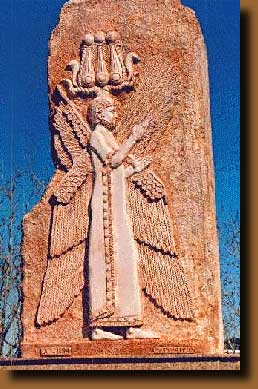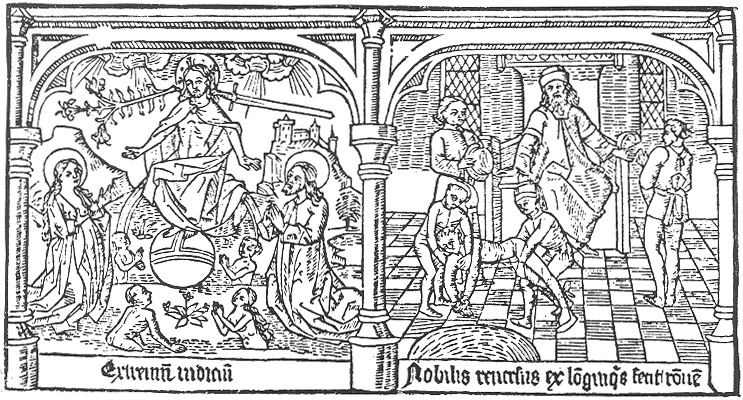Tuesday, March 31, 2009
Monday, March 30, 2009
My copy came in the mail...

After reading the preface and the acknowledgment section of the book I am eager to tuck into it and see what the fuss is all about. I will say that the distribution of this book is dismal, and really needs to be addressed by Equinox. The tangible book itself is ok, if not a bit flimsy, it looks like a print on demand, which makes the distribution problem even more puzzling. I bought mine through Caimanoutlet, a vendor on the Amazon.com site known for selling things that they don’t currently have in stock, it took a little over a week so I am sure they got it from the UK, but it arrived nicely packaged and in good shape and for the same end price as amazon.com’s price. But alas, the content is why you buy books, right, so I am sure it will be worth the wait!
Now the most important question: do I put down John Irving to start James’ book or do I wait…?
Wednesday, March 25, 2009
So you are thinking about a Ph.D. in Biblical Studies?


Tuesday, March 24, 2009
On Cyrus, Isaiah, and Empire?

Now I completely understand that there are numerous ways to read texts, and while often times this can be traced to an authors own presuppositions, this limitation should not be used to disregard all readings, there are still good or bad readings. And while I am not familiar with many of John Hobbins' readings I wonder about his assessment of Israel's appropriation of Cyrus, and by implication thier acceptance of his Empires. I am not saying that his reading is wrong, I would just like to tease out some thoughts to see how he responds.
Hobbin's uses the presence of Cyrus in Second Isaiah to argue for a favorable view of Cyrus and his Empire among those in exile. He states:
"On the other hand, Persian imperialism in Isa 40-48 is described in glowing terms. The Persian conquest of Babylonia and the Levant under the leadership of Cyrus was viewed positively insofar as it brought an end to Babylonian imperialism, treated everyone with a measure of respect, and fixed as a goal the extension of its writ to the Aegean isles and coastlands. This passage most likely has Cyrus in mind (Isa 42:1-4)..."
It is true that YHWH's call of Cyrus is important, namely because the text associates him with the redemption of Israel. Cyrus is a depiction of YHWH's power, as the text insinuates it is YHWH who raised up Cyrus from the beginning, it is YHWH who will bring the rulers to nothing, and again it is YHWH through Cyrus who will both destroy Babylon and rebuild Jerusalem. Cyrus is even likened to Moses as the responsible agent in the what might be termed the new exodus, the text even goes on to call Cyrus a messiah and a shepherd, certainly insinuating beyond all doubt that YHWH is clearly affirming him. So Hobbin's is correct that Cyrus and thus by implication his empire is described in glowing terms.
But this is precisely where his argument seems to break down, because despite YHWH's affirmation of Cyrus (obviously depicted through the prophet), it is this very depiction that becomes the center of Israel's argument with YHWH, for it is seemingly YHWH's choice of Cyrus as their rescuer that doesn't sit well with them. Thus in 44.24-28, after YHWH declares himself the creator of all, the confuser of the wise, and the one who commands Jerusalem to be rebuilt, YHWH slips in that, 'it is I who say of Cyrus, ‘my shepherd’ and he will perform all my desire'. Then in 45.9-13 YHWH announces misfortune to those who dare question their maker, pointing out that since he is the creator of all things that he can do what he pleases, exclaiming, 'I have aroused him [Cyrus] in justice’. And again in 46.5-11 YHWH begins by mocking the idea that he can be regarded as an idol, reminding the rebels (Israel) that he alone knows the end from the beginning. He finishes by declaring that he will accomplish his purposes 'calling a bird of prey from the East, the man of my purposes…' And finally in 48.14, YHWH reaffirms that he 'loves him [Cyrus]’, and it is Cyrus who ‘…shall carry out his good pleasure on Babylon'.
The point I am trying to make is that even though the text (as a substitute for the prophet and YHWH) seem to think highly of Cyrus, and his Empire, because they are to be YHWH's agents in freeing his people, the people don't seem to share this opinion. Hence the disputations.
While the question of why this clash between YHWH and Israel over Cyrus, is of course much harder to answer. (It could have been similar to Habbakuk's disappointment with pagan liberators, I am not sure.) The text no doubt uses the rejection of Cyrus, to highlight Israel’s refusal to accept YHWH's plan. Thus bringing Israel’s recalcitrant heart into the open.
So while the prophet may be describing Cyrus in glowing terms, the people are not buying it.
_______________
See Further:
John Goldingay, The Message of Isaiah 40-55: A Literary-Theological Commentary, 253-300.
Lisbeth S. Fried, "Cyrus the Messiah? The Historical Background to Isaiah 45:1," 391.
K.D. Jenner, "The Old Testament and Its Appreciation of Cyrus," Persica 10 (1982): 284.
Ralph W Klein, Israel in Exile, chapter 5.
Rikki Watts, "Consolation or Confrontation," 41-42.
Monday, March 23, 2009
The Copenhagen/Sheffield school has been expanded, all are welcome!

Wall-O-Books Meme
Saw this over the weekend and thought about starting a dreaded meme, but this one a photo meme, i.e. post a picture of your wall-o-books!
Mine will appear shortly....
Ganging up Ikea shelves for a striking, cheapass wall-o-books

Eva combined $1056.95 worth of Ikea EXPEDIT shelves to build this awesome megashelf -- I'm such a sucker for the wall o'books.
Friday, March 06, 2009
Empires, Mercy, and Obedience

Back to Elliott's Arrogance of Nations, we are now up to the chapter on CLEMENTIA, or mercy. Mercy if you understand politics is the prerogative of those who have power. In this case the Emperor. It is the Emperor who has the ability to show those who are truly powerless and submissive mercy and it is up to him to determine what is and what is not merciful. It is nice to be the one in charge of making these decisions. Now it is easy to see how Paul's proclamation of God’s mercy as the public manifestation of God’s Justice could be offensive. Because ultimately the purpose of mercy is that for those who have received such mercy they are supposed to be so moved as to respond in obedience. But according to Paul all the world – not just the Judeans- is accountable to God. But the subtext to all this is that it is the losers who receive mercy.
So who were the losers in Rome during the time of Paul's letter. Well Elliott would argue, based on a number of things, including the "in chrestus" expulsion, the recent return of the homeless and jobless Judeans, and from the perspective of mercy coming from the Emperor, that the Judeans were indeed the losers. For Paul if the Romans buy into this form of thinking then it naturally would beg the question of whether Israel stumbled so as to fall. Paul's task is to get the Romans to be able to see past the surface of history, to see that mercy comes from the justice of God and not from throwing your lot in with the Empire.
Now this is a very cursory attempt to summarize Elliott, his chapter, and his book, is much richer than my feeble attempts at summary make it seem.
Wednesday, March 04, 2009
Two Books of Note: and a little nepotism
Because I know some of you are preparing your SBL buying list early this year be sure to make room for two of what I am sure will be the best books to come out on social memory and the application of social scientific theory in 2009. Both of these authors are great thinkers and great people so even though the economy is in the tank be sure to pick up at least one copy of each! Here are the blurbs from T&T Clark:
In Structuring Early Christian Memory: Jesus in Tradition, Performance Rafael Rodriguez embarks upon how social memory research has obscured the relationship between past and present in New Testament studies. This captivating debate focuses on the figure of Jesus, a ‘historical Jesus’, and Rodriguez formulates many interesting observations in his quest to find whether it is possible to clearly separate ‘authentic’ from ‘inauthentic’ traditions.
Reading Ephesians: Exploring Social Entrepreneurship in the Text, by Minna Shkul, explores how Ephesians connects in social entrepreneurship, a process that has shaped the emergence of Christian Identity. Shkul’s intriguing discussion stands against the widely assumed theological presupposition that something was wrong with the Judaism practised at the time, but rather focuses upon the divine ‘legitimating’ of the Christian group and its culture.



